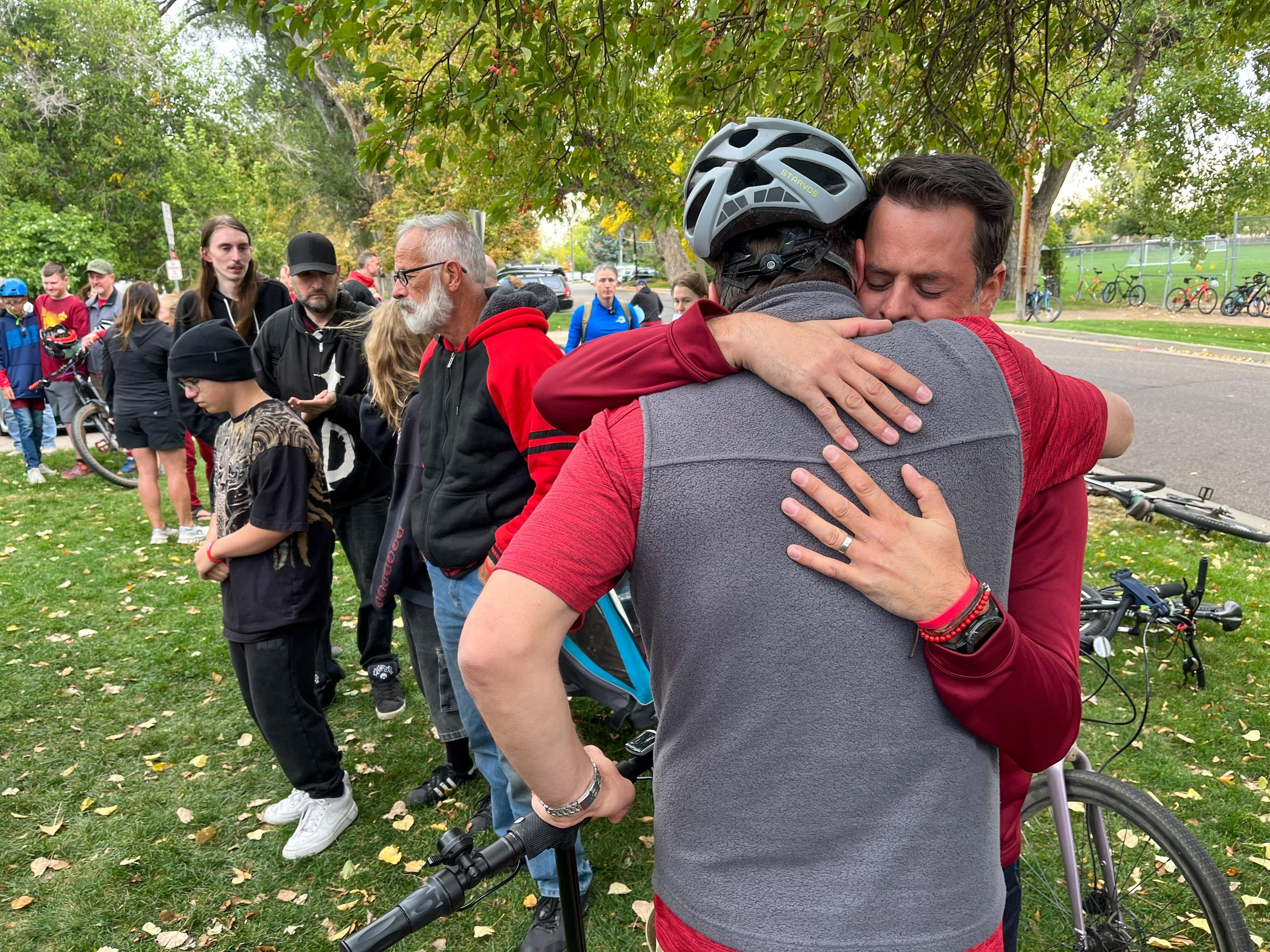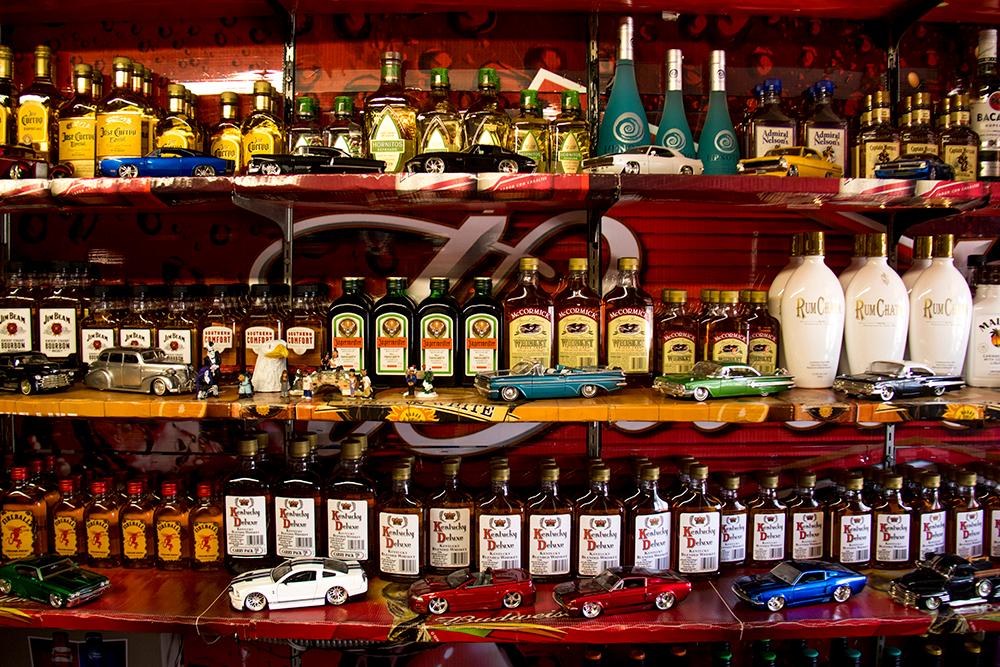
A bill introduced this week at the Colorado state Capitol would heighten penalties for drivers whose careless driving kills or seriously hurts someone.
Under current law, the offense is class one traffic misdemeanor. The penalty ranges between 10 days to one year in jail and fines between $300 and $1,000. Careless drivers who kill someone receive enough points on their license for a temporary suspension.
The new bill would increase the penalty for causing one or more deaths to a class six felony, which could mean prison time of up to 18 months, up to a $100,000 fine, and a license suspension of up to a year. A careless driver who caused a serious injury could also lose their license for up to a year.
The intention is to send a message to drivers that careless driving needs to be taken more seriously, said Sen. John Carson, a Highlands Ranch Republican who is co-sponsoring the bill.
“I've had a number of parents say to me, or family members say to me, ‘my son is dead now and they're telling me it was a misdemeanor and a $1,000 fine,’ “ Carson said. “And that just doesn't seem right.”
The bill has the support of Bicycle Colorado, Douglas County District Attorney George Brauchler, and some families of people killed by drivers. It’s opposed by Colorado Criminal Defense Bar, which argues that increased penalties are not an effective way of deterring future crashes.
Carson said he took interest in the issue after a teen was killed in his district
A driver hit and killed Alex Mackiewicz of Highlands Ranch while he was on his way to school last year. The tragedy resonated throughout the community, Carson said, and prompted him to learn more about the issues and ultimately sponsor the bill. Carson said he was surprised to learn just how many vulnerable road users are killed in Colorado – more than 150 bicyclists and pedestrians alone in 2023.
Some of those deaths were caused by careless drivers. The driver that killed Mackiewicz pleaded guilty to a careless driving charge and was sentenced to one year in jail and a $1,000 fine. In Littleton, the driver that killed 13-year-old Liam Stewart also pleaded guilty to a careless driving charge and was sentenced to two years of probation and a $1,000 fine.
“To me, it needs to be a higher penalty than that,” Carson said.
The bill has the support of Mackiewicz’ mother and Stewart’s father. Josh Stewart, who has advocated for safer streets since his son’s death, said it was “devastating” to learn that the driver who killed his son would only face a misdemeanor.
“There's no amount of punishment that seemed like it could balance what we were feeling,” he told CPR News. “I will say in the wake of his death, we immediately chose to forgive the person because that's who we are. And so this wasn't a matter of retribution, this wasn't revenge. We don't want to see this person's life completely upended and destroyed. But we feel like there is responsibility to be taken and there are consequences that come with that responsibility.”
The bill would also step up drug and alcohol testing of careless drivers who kill
It would require law enforcement officers to administer drug and alcohol tests of drivers they have probable cause to believe drove carelessly and caused one or more deaths. That provision has drawn the support of the parents of Magnus White, a 17-year-old Boulder cyclist killed by a driver in 2023.
The driver in that case was convicted of vehicular homicide by reckless driving and is facing two to six years in prison, which is non-mandatory, and/or a $2,000 to $500,000 fine when she is sentenced in June.
The driver’s attorneys argued that she was guilty only of careless driving. Careless driving involves negligence and lack of attention. Reckless driving is a more severe charge, defined as operating a motor vehicle while consciously disregarding the safety of others.
White’s parents believe the driver should’ve faced even higher charges but didn’t because police officers failed to collect evidence at the scene. The driver, 24-year-old Yeva Smilianska, initially told officers her vehicle’s steering malfunctioned and caused her to drive off the road and hit White. Investigators later determined there was no issue with the vehicle.
At the recent trial, prosecutors presented evidence that Smilianska was drinking much of the night before the crash and didn’t fall asleep until early in the morning. But officers never tested her for drugs or alcohol.
“There was so much evidence that was missed on the scene on Day One,” Michael White said. “If they would've followed protocols on Day One, the sentence would've been much, much higher.”
Defense attorneys say higher charges for careless driving won’t prevent future tragedies
Because careless driving is not intentional, stiffer penalties will have no impact on deterrence, argued Tristan Gorman, policy director for the Colorado Criminal Defense Bar.
“If people could avoid car accidents, they would,” said Gorman, who has no relation to the co-author of this story.
Prosecutors generally only use the careless driving charge when there are no felony charges that fit the facts in the case, Gorman said. That means the driver isn’t intoxicated or impaired, did not drive intentionally recklessly, and didn’t leave the scene. When a driver makes a mistake, even a deadly one, making them a felon accomplishes nothing, Gorman said.
“Survivors and victims' family members have been sold a bill of goods by our carceral society, by prosecutors and police, that somehow if there's a criminal conviction, and particularly if it involves a sentence to incarceration, that's going to solve their problem, that's going to make them feel better, that's going to bring them closure,” he said. “And I personally have spoken with an awful lot of victims and victims, family members who don't feel that that is true.”
Some transportation safety advocates endorse the Vision Zero method of framing traffic deaths and injuries as the result of an unsafe transportation system, and not the fault of individual people. They argue that changing the physical characteristics of roads to promote bicycling, walking and transit and to force drivers to drive safer is a more effective way to reduce traffic deaths and injuries.
Gorman agreed with that.
“Unless we get away from so many people driving cars, there's no way to solve this problem,” he said. “All you can do is nibble at the edges.”
But reshaping an entire transportation system is a long, expensive and controversial process. So supporters of the bill hope that the threat of higher punishment would help make Colorado’s roads safer in the meantime.
“Colorado needs to start sending a message that in this day and age, with the distractions that are available for drivers and the number of people we encourage to use our roadways outside of a car … we have to start taking seriously protecting those lives,” said Brauchler, the district attorney. “This is one way to do it.”
The bill’s first hearing is set for April 16 at the Senate Judiciary Committee. Bicycle Colorado Executive Director Peter Piccolo expects it will be a challenge to pass.
“I think we're going to have our work cut out for us,” he said.









